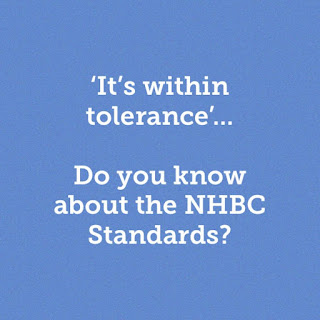Cladding: how it caused our property purchase to fall through
What is cladding and why does it matter?
I didn’t know what cladding was until we had issues getting a mortgage because of the lender’s concern over cladding.
Since the Grenfell Tower fire, cladding has been under a lot more scrutiny and the high street lender we used was very cautious about it.
This article gives an explanation of what cladding is, uses of cladding, and the fire safety concerns.
More articles on cladding and how homeowners are impacted by cladding in the following articles:
Evening Standard
BBC
The Guardian
Here’s the story of our first property purchase which sadly fell through because of cladding:
In summer 2019, we found a new build flat that we loved! Our offer was accepted and we instructed the mortgage broker and solicitor. There were some delays in the bank arranging a valuation for the flat but once that was resolved we were pleased that the transaction was
progressing.
Our solicitor was looking through the contract papers and sending across the enquiries to the developer’s solicitors. We were reviewing the Report on Title and asking our queries. It was very exciting!
Then we received the valuation report and it started to go downhill. The valuer had not provided a valuation because there was cladding on the building and first needed to see the cladding documentation. The building wasn’t a high rise, there was only some cladding on two of the upper floors and the rest of the building was brick.
This was a pretty big shock for us and then we spoke with our mortgage broker and estate agent on next steps. There was a month of back and forth between our mortgage broker and lender where multiple cladding documents were sent across. Each time the lender responded that the valuer had said the documents weren’t suitable. The developer had provided documents such as the cladding testing reports, relevant letters and the fire safety report for the development. It became increasingly frustrating that time and time again, documents were provided but were not sufficient.
It wasn’t until a few weeks of this back and forth that we were able to obtain more guidance of exactly what the lender wanted to see on the cladding. We promptly shared this with the developer and what was disappointing was that, despite asking multiple times and sharing the exact wording, they did not provide a document in line with the below guidance from the lender:
“We require the Building Owner and/or its agent, as the 'responsible person' under the Regulatory Reform (Fire Safety) Order 2005, to produce a written statement to confirm that the subject property meets the requirements of the current guidance from MHCLG.
The statement must be prepared by a suitably qualified independent professional advisor who is a member of one of the professional bodies listed by the Ministry of Housing, Communities and Local Government (MHCLG) in Information Note 1 (or any subsequent list).”
We were repeatedly informed by the estate agent that other flats in the development had sold and those lenders had been happy with the cladding documents. Whilst it was helpful to know that, each lender is different and we needed our high street lender to be comfortable with the cladding documentation.
We felt pressured by the estate agent to reapply for a mortgage with a different lender. We considered it, but what our lender was requesting in terms of cladding documentation seemed reasonable, the interest rate would be higher with another lender and there was no assurance that the next lender would not have the same issues with the cladding documentation. We even asked the estate agent which lenders were happy with the cladding documents on the other plots but this information was not provided. In the end, we decided not to proceed with a different lender.
I felt very worried, stressed and vulnerable. There didn’t seem to be someone that we could reach out to for support and to understand what all the cladding documents meant.
At the back of my mind, I had the constant worry about the cladding because it seemed unusual that the developer had not provided that a written statement that the lender needed to see. If everything was fine, a written statement should be quick to send across?!
Further, a colleague had informed me that his friend had recently been sent a bill of over £10,000 for the remedial work on the cladding for the property he owned. This really made it feel more real and how potentially the leaseholders (i.e. us!) could end up paying the bill. It is a lot of money to suddenly have to pay!
After reading the news articles on cladding and how it impacted other homeowners, I was worried that even if we were successful in buying the property, we might up end up having to pay thousands of pounds for the cladding to be rectified if there was an issue, or have trouble remortgaging and would be stuck at a higher interest rate after the two year fixed term ended.
The mortgage application was not progressing, the developer had not provided a written statement in line with the guidance from the Lender and were saying they had provided all they could provide. We decided that we needed to explore what the actual cost would be if we pulled out of the transaction.
The estate agent had informed us that we would be able to get the £3,000 reservation fee back. We had checked this with him as on the reservation form, it had said non-refundable but with a note that if the reservation is cancelled, it can be repaid with administrative or other costs deducted (incurred by the developer in processing and holding the reservation). It also referred to the new build housing code.
We ultimately decided to pull out of the transaction because of the following reasons:
· The lender did not accept the cladding documentation provided
· The developer had informed us that this was all the documentation they could provide
· We were wary of the fact that the developer had not provided the written statement as per the request from the lender
· We didn’t have comfort that the cladding was fine as the lender was not comfortable with the documentation
· We didn’t feel informed enough about cladding and didn’t have access to an expert in the matter to help explain to us the cladding documentation and risks
· We were worried about future issues remortgaging and selling if it was later confirmed that the cladding was not in line with government guidance, plus any potential cladding remedial costs
· We thought we would get back the £3k reservation fee and only be incurring the legal costs
We were very disappointed but we felt that there was too much uncertainty and that the longer term costs of being unable to remortgage or sell the property could be a higher cost than the £2k worth of legal fees we had incurred.
The developer initially refused to return the £3k reservation fee to us which was so upsetting as it wasn’t our fault we couldn’t proceed since the lender was concerned regarding the cladding and would not issue the mortgage offer because of this.
The developer said other plots had sold and they had been advised previously by the estate agent that we were switching lenders. This was incorrect as we had never agreed to do so. Despite us informing them of this, they still refused to refund us the money. They gave multiple reasons for why we couldn’t have our money back, which we didn’t agree with. They refused to provide us with a direct contact so we kept having to go through the estate agent. We were not getting anywhere and our solicitor kindly helped us at no extra cost to contact the developer’s solicitors to help us to find a resolution. After another two months, the developer finally agreed to refund half the reservation fee.
Learnings:
· Understand your consumer rights in the relevant Consumer Code for New Builds and know how you are protected. Make sure you know which Consumer Code they comply with before paying the reservation fee. We didn’t know to do this at the time and when we tried to get the reservation fee back, we asked multiple times and this question was not answered.
· Read the small print regarding the reservation fee. In later properties we looked at, we always asked whether we could get written confirmation that the reservation fee would be refundable. Some developers are fine with this and other estate agents we spoke to were surprised our reservation fee initially wasn’t returned.
· Ask the mortgage broker about other property transactions they have dealt with to see if cladding continues to be an issue. It is better to be informed early on!
· Make sure you know whether there is cladding or not before making an offer.
· Ask early on in the process whether the cladding has been tested and if there is a document which confirms that it meets the latest guidance.
What has happened since our experience?
In December 2019, it was announced that there would be a new External Wall Fire Review process and would require a fire safety assessment to be conducted to give comfort to the all the key stakeholders in a property transaction (e.g. lenders, buyers, valuers). Read more about it here!
It is definitely worth reading up on this before you make an offer on a property with cladding and to speak with your mortgage advisor to understand what the latest situation is. We incurred thousands of pounds in costs after our transaction fell through.
RICS has a Cladding Q&A webpage too.
If you would like more information about government guidance, I came across this article! I wish it was available when I needed to know more about cladding last summer.
Have you had similar issues? It would be really helpful if you could share your experiences in the comments below to help others!
Jess





Comments
Post a Comment